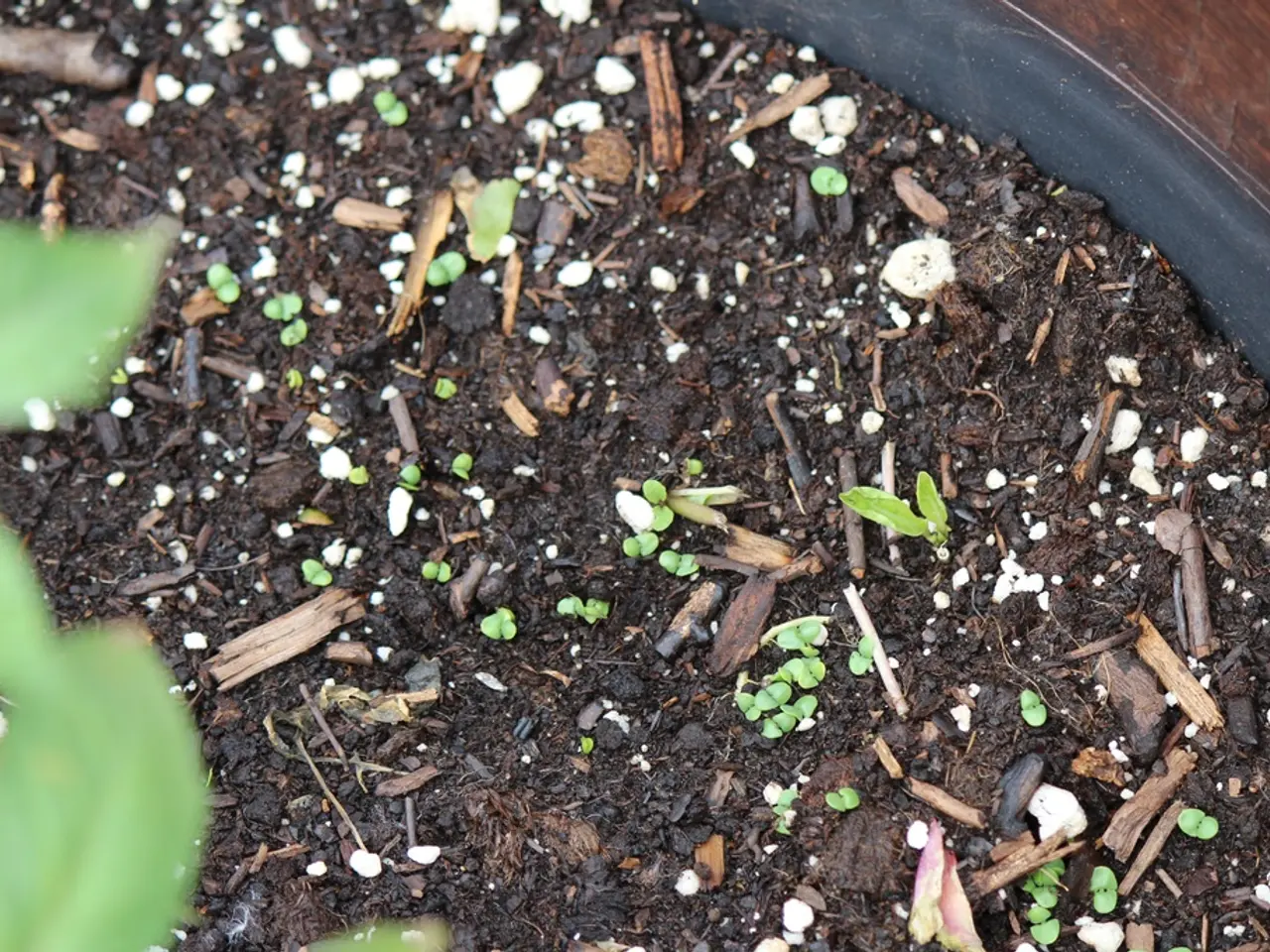Optimal Blends for Miniature Green Spaces: A Horticultural Guide
In the realm of urban gardening, choosing the right soil mixture is crucial for the success of your organic vegetable garden. The ideal soil blend should provide essential nutrients, maintain good drainage, and offer a suitable environment for optimal plant growth.
Compost in a potting mix plays a vital role, supplying essential nutrients that plants need to thrive. When selecting soil for urban gardening in containers, it's essential to consider drainage, ensuring that the soil is neither too dense nor too waterlogged. A slow-release fertilizer can also benefit steady growth in a potting mix.
Organic soil for small gardens is a nutrient-rich option, helping plants thrive while being environmentally friendly, as it is made from natural materials without harmful chemicals. Organic soil has better water retention, reducing the need for frequent watering.
A pH between 6.0 and 7.0 is ideal for most vegetables, and the soil should feel crumbly, not dense or sticky. Improved soil structure in organic soil allows air and water to flow easily.
When it comes to organic vegetable gardens in small spaces, the best soil mixtures often consist of a balanced blend of topsoil, compost, and a drainage component like coarse sand. A highly recommended mix is 40% topsoil, 40% compost, and 20% coarse sand.
Additional amendments to enhance this mix include peat moss or coconut coir, which increase water retention and aeration, and rock dust, which adds trace minerals to replenish soil fertility. Organic fertilizers or amendments like worm castings and oil seed cakes can boost microbial activity and provide balanced nutrients.
For container gardens or very small raised beds, lighter potting mixes can be created using equal parts coconut coir, compost, and garden soil or sand, with added microbial inoculants like phosphobacteria and beneficial fungi for better plant health.
In summary, the ideal soil mix for organic vegetable gardening in small spaces contains a loamy base (topsoil), rich organic compost, and good drainage material like coarse sand, supplemented by natural amendments to enhance fertility and structure, favouring sustainable options like coconut coir over peat moss. A layer of gravel at the bottom of pots provides extra drainage and acts as a comfy bed for plants.
[1] Organic Gardening: The Ultimate Guide to Growing Your Own Food (2020), Rodale Books [2] The Vegetable Gardener's Bible (2016), Edible Gardening Publications [3] The Complete Guide to Composting (2019), Storey Publishing [4] The Organic Gardener's Handbook of Natural Insect and Disease Control (2019), Rodale Books
- In the realm of small space organic vegetable gardening, opting for environmentally friendly soil like coconut coir, which is derived from natural sources, ensures a sustainable gardening lifestyle.
- The fashion-and-beauty industry can follow the example of urban gardening by utilizing sustainable practices, such as using natural and compost-enriched soil mixtures for home-and-garden projects, promoting a healthier environment.
- As one tends to their organic vegetable garden, taking the time to practice gardening techniques and selecting eco-friendly soil and amendments can contribute to a greener, more environmentally friendly lifestyle, benefiting both the individual and the environment.




